The globalization of Irish traditional music: Celebrating Saint Patrick’s Day in our own Happy Valley
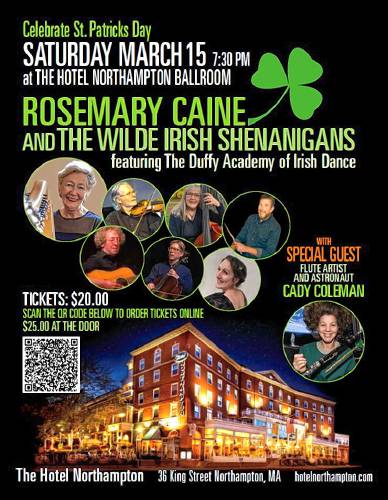
The Wilde Irish Shenanigans perform this Saturday, March 15, at 7:30 p.m. in the ballroom of The Hotel Northampton. CONTRIBUTED
| Published: 03-12-2025 2:37 PM |
A few decades ago, we would have been grateful for any kind of pub gig or a hospitable venue that would allow us to play any day, but especially Saint Patrick’s Day.
We were often asked: Are you really an authentic Irish band? What’s authentic? I’m from Ireland, does that count? Do you sing “The Wild Colonial Boy?” We can learn it.
Now as we approach March 15 to celebrate Saint Patrick’s Day 2025, we wonder: has anyone ever sung it in the ballroom of The Hotel Northampton? We could be the first.
So who are we in the Valley of Music and specifically Irish music? The Wilde Irish Shenanigans.
We are diverse by age and ethnicity. Our cultural clannishness is hardly coincidence or purely Irish, it’s several decades in the making of music and performing together. I’m proud to say that includes the Celtification of many musical Jews. Our repertoire spans music from 17th century Turlough O’Carolan to familiar chestnuts of Irish traditional and the more recent music of myself, Wilde Irish Rosemary Caine. We will embrace lots of that repertoire on March 15 in the grand ballroom of the grand Hotel Northampton.
We have a great range of musical possibilities with six accomplished musicians: multi-instrumentalist Chris Devine (fiddle, flute, whistle, mandolin guitar); Michael Morgan (guitar); Rick Mauran (percussion, drums); Lynn Lovell (bass); Robin Pfoutz (cello); Brooke Steinhauser (lead singer); and myself, Rosemary Caine (harp, bodhrán). Additionally, we have guest artist, flutist and astronaut Cady Coleman.
The Wilde Irish Shananigans’ sister act is Wilde Irish Women, whose most recent original work is “Margaret Maher and The Celtification of Emily Dickinson,” a play about an Irish maid in the Dickinson employment who defied Emily’s deathbed decree to burn her poems.
In addition to playing in the Valley for years, we have been reverse musical migrationers to Ireland. We’ve collaborated on six original musicals in various lineups, performed in theater festivals, and more recently in 2024, back home at The Academy of Music and The Emily Dickinson Museum.
Article continues after...
Yesterday's Most Read Articles
 Report cites inequities in land valuation for central, western Massachusetts
Report cites inequities in land valuation for central, western Massachusetts
 Amherst Town Council calls emergency meeting to consider rescinding funds for Jones Library project
Amherst Town Council calls emergency meeting to consider rescinding funds for Jones Library project
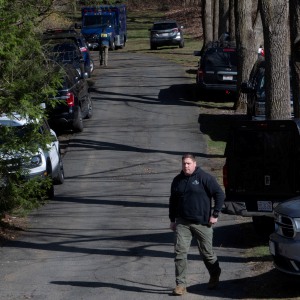 Hadley man detained after chemicals go missing
Hadley man detained after chemicals go missing
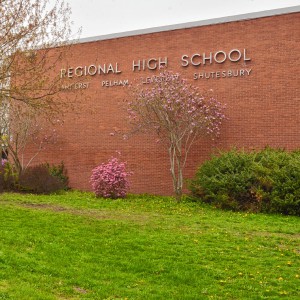 Student petition leads Amherst Regional High to reopen bathrooms during lunch; school will explore other ways to address vaping
Student petition leads Amherst Regional High to reopen bathrooms during lunch; school will explore other ways to address vaping
 Columnist Bill Newman: The war on us has begun
Columnist Bill Newman: The war on us has begun
 Turnover coming for Northampton School Committee
Turnover coming for Northampton School Committee
Songs inspired by Emily Dickinson’s poetry are on The Irish Leaving Certificate, a rigorous final exam like the SATs that determines entry into college in Ireland. We performed at The Abymil Theatre in Fethard Co Tipperary, near Killusty where Margaret Maher was born. The story caught the attention of the Irish media and we were featured in a documentary on Ireland’s RTE TV “Nationwide.”
The Wilde Irish Shenanigans brand ourselves Eclectic Celtic, but what does that really mean?
When I arrived from Ireland on March 2, 1972, neither of those words would have applied to Irish Music. Celtic, now the easy branding for any band who can play a jig or a reel, and eclectic, perhaps the permission to play whatever we like now that fits.
In our case, a core band that also expands to a musical backing for a larger theater group whose mission is in the propagation of the stories of some of our chosen Wilde Irish Women: women like Maude Gonne, Sarah Curren, Nora Barnacle, Veronica Guerin, Lady Jane Wilde and even fish seller Molly Mallone. We have frequently repatriated them back to their old country on a song and a few prayers, like our recent Wilde, Margaret Maher, and we dared to attach Emily Dickinson to her Irish apron strings.
In 1972, as far as I was concerned, The Irish Diaspora was a pub in Norwood, Massachusetts, The Harp and Bard, where my Burren Flora trio was hired by Tommy Makem to perform for three months. Our story could have ended there and we might have returned home to Ireland after the three months. Two of us did and the other (myself) is still here by the default of a first marriage. Now I’m a musical native of Happy Valley and part of a diaspora that is global, with Irish sessions in pubs from Shanghai to Sydney.
I suppose Irish cultural proliferation is OK, we could do worse than impose our jigs and reels on unsuspecting international Guinness drinkers. There’s an immediate musical bond that ignites fiddles, guitars, bodhráns, bones, tin whistles and Uilleann pipes. Players with not a drop of Irish blood have learned the craft of playing in many Irish music styles and sessions, which stretch around the world’s approximately 7,000 Irish pubs.
How did the music of a formerly downtrodden nation take such hold in Irish pubs worldwide? A unique global franchise on a group of Irish dance tunes and songs. The imitated archetype of the Irish pub has proliferated abroad, and even as many are shutting down in Ireland, most survivors still remain the social centers in small towns. Many the major tourist attractions in towns known for traditional music — Doolin in Clare, Dingle in Kerry, Temple Bar in Dublin — their closure was exacerbated by the COVID lockdown, threatening what they really provided beyond the reputational Irish fondness for “the jar”: community.
My brother ran a restaurant in our hometown, Ardee Co Louth. When he finished cooking and greeting customers, he took off his chef’s apron and went up to Conlon’s pub for a pint at 10 p.m. to meet his father-in-law and the other locals. It wasn’t just the few pints of Guinness that were a social lubricant, it was hanging over the counter listening to “what yer man said.” They hung on each other’s every word, characters, personalities, talkers and listeners, even if the occasional, “don’t speak while I’m interrupting” had everyone talking at once. Pubs provided more than music food and drink.
All those years ago, Irish musicians, including famous ones like Tommy Makem, were hard-pressed to find work in Ireland. At the time Tommy was on a hiatus from his Clancy Brother colleagues. He seemed happy to work with us unknown musical emigres despite his world-standing as a top notch Irish star. We were surprised that most Irish music in the U.S. then was still in the “Toora, Loora, Looral” dark ages of Mac McNamara’s band, “Who Put The Overalls in Mrs. Murphy’s Chowder,” and a good annual cry in your green beer on Saint Patrick’s Day. This was the American expression of Irishness we had yet to understand and absorb as its own version of authentic.
Some 50 years on, there is less crying, and more global success for brilliant Irish musicians like The Chieftains, Solas, Night Noise, The High Kings, Altan, and Lúnasam, and the younger ones who carry on the tradition with fresh inspiration and genius arrangements. The new generation coming to the tradition by heritage now often come with a conservatory musical education.
We are on the coattails of the pioneering artists who have kept traditional music alive, continuing to inspire, allowing for innovative ideas, converting the purists to the more fluid notion of what traditional music can be and is; artists like Afro Celt, Clannad, Van Morrison, Enya, Bono, U2, The Cranberries, and Sinéad O’Connor, who have paved the way for our own eclectic Shenanigans.
The Wilde Irish Shenanigans perform this Saturday, March 15, at 7:30 p.m. in the ballroom of The Hotel Northampton. Tickets are $25 at the door or $20 (plus fees) in advance via Eventbrite, by visiting https://tinyurl.com/339bcjsu.
Rosemary Caine is a native of Ireland and Greenfield, a member of the Young@Heart Chorus, and a harpist in The Wilde Irish Shenanigans.






 Speaking of Nature: A surprise in my maple tree: Porcupines just want to find something tasty to eat and be left alone
Speaking of Nature: A surprise in my maple tree: Porcupines just want to find something tasty to eat and be left alone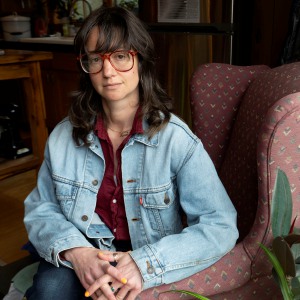 The cost of addiction: New novel draws on Valley backdrop to explore how substance use upends people’s lives
The cost of addiction: New novel draws on Valley backdrop to explore how substance use upends people’s lives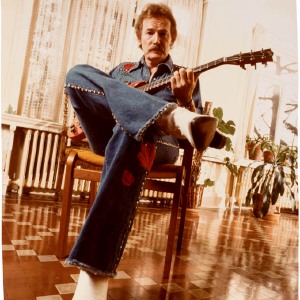 The legend lives on: The Lightfoot Band brings the music of their late bandleader to the Iron Horse
The legend lives on: The Lightfoot Band brings the music of their late bandleader to the Iron Horse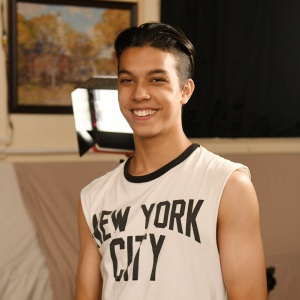 Young filmmaker makes his debut: 16-year-old director and writer to screen his film at Greenfield Garden Cinemas
Young filmmaker makes his debut: 16-year-old director and writer to screen his film at Greenfield Garden Cinemas
